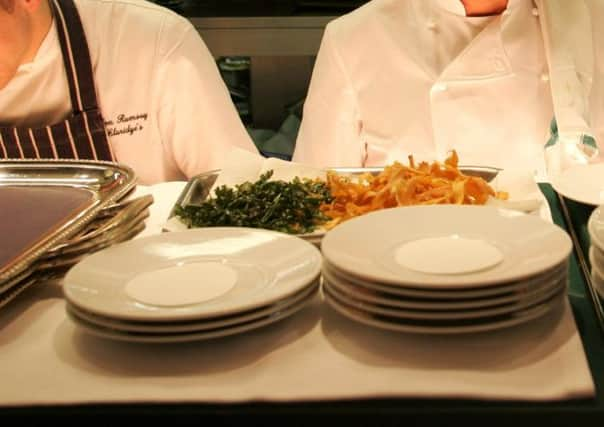Food for thought: Lesson in democratic tastes


The term alone is enough to give you indigestion, involving, as it does, starched linen, tortured food and a dining room with all the atmosphere of an funeral parlour.
Thankfully, the financial crisis forced a hard reset in the restaurant world and the customer is the net winner.
Advertisement
Hide AdAdvertisement
Hide AdIf fine dining is out, casual dining is most definitely in.
Last week I was in London, where the food culture has never been more vibrant. Even five years ago the buzz was all about what was happening at the top end of the market, but democratic dining is the current craze.
I can remember an expense account lunch in Soho during the naughty Nineties that ended with a bill that still makes me blush to this day.
The place that provided it is long gone, but on the same site is a branch of the Mexican chain Wahaca. Two of us had a brilliant lunch there the other day for just over £20.
Around the corner is one of the dirty burger joints currently riding the crest of the trendy dining wave. The walls were bare brick and the food came on tin plates but it was delicious, plentiful and my meal cost less than £10.
With Brasserie Zedel delivering a two-course menu for less than £9 right at Piccadilly Circus, and Russell Norman’s Polpo chain listing small dishes starting at just £3, it really is possible to eat well and cheaply in London for the first time in years.
At the top end, Marcus Wareing has just reopened his Michelin-starred restaurant, introducing a more flexible menu. Similarly, the Hawksmoor chain have transformed how most of us imagine a steak house, stripping out all the fuss and nonsense and making it all about the meat.
That doesn’t mean it’s cheap but it does feel like your bill is paying for the best ingredients and proper chefs not expensive furnishings, smart waiters’ jackets and linen laundry bills running into five figures a year.
Advertisement
Hide AdAdvertisement
Hide AdSo what does all this mean for Scotland? Perhaps it is our stereotypical canniness but it feels like we are up with the trend. There are no tablecloths or hushed voices at the Michelin-starred Kitchin in Leith, and The Honours also proves proper food doesn’t require lashings of fuss.
That approach is certain to spread. Just last week Aizle opened in Edinburgh with a stripped-back approach that is all about the food. It has no traditional menu, instead it serves a changing four-course tasting menu for £35, promising “high-end cooking in a relaxed environment”.
Food, like everything else, is changing. If you currently run a restaurant with sky-high prices, fine furnishings and designer uniforms, the truth is, you probably won’t be for very much longer.